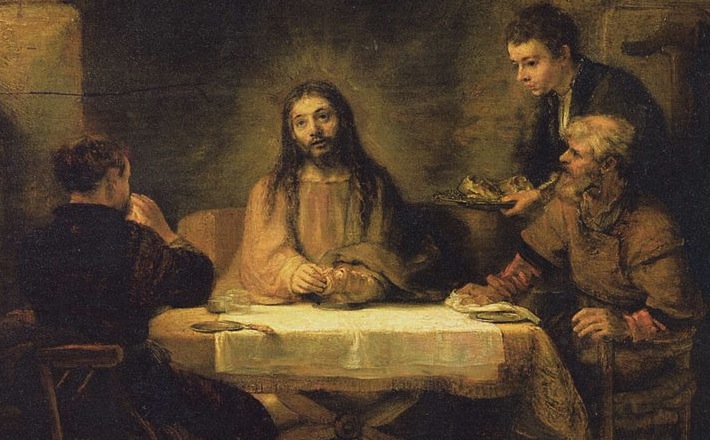Commentary on 1 Peter 1:17-23
In his explanation to the second article of the Apostles’ Creed, Luther writes,
“I believe that Jesus Christ — true God, Son of the Father from eternity, and true man, born of the Virgin Mary — is my Lord. At great cost he has saved and redeemed me, a lost and condemned person. He has freed me from sin, death, and the power of the devil — not with silver or gold, but with his holy and precious blood and his innocent suffering and death.”
Luther’s understanding of what is at stake in the person of Jesus is based, in no small part, on the description in 1 Peter 1:18-19, of what “you know.”
“ … that you were ransomed from the futile ways inherited from your ancestors (me, a lost and condemned person), not with perishable things like silver or gold, but with the precious blood of Christ (quoted directly), like that of a lamb without defect or blemish.”
1 Peter goes on to say that it is because of this, that which God has done in Christ Jesus, that we come to trust God. God raised Christ, gave him glory — life out of death. This promise that creates in us trust in the God who is not just God but “my Lord” is as Luther put it, liberation from “sin, death, and the power of the devil.”
Here again, 1 Peter speaks of a new birth. In 1:3 the new birth is to a “living hope” that is ours through the resurrection of Jesus. In 1:23 the promise, founded on the trust established in us by the resurrection, is of being born anew here and now by that promise. 1 Peter calls upon a critical contrast found in both the writings of Paul, and in the Old Testament: the perishable becoming imperishable. Being born anew, means being reborn imperishable, in one’s life, and in one’s faith. As Paul puts it,
“So it is with the resurrection of the dead. What is sown is perishable, what is raised is imperishable. It is sown in dishonor, it is raised in glory. It is sown in weakness, it is raised in power. It is sown a physical body, it is raised a spiritual body. If there is a physical body, there is also a spiritual body” (1 Corinthians 15:42-44).
1 Peter claims the promise, “the good news that was announced to you” (1:25), as the imperishable promise that ours in Christ. This word is an “imperishable seed,” and the new life we have through that word, is equally imperishable. Because God through Christ Jesus says so. The Revised Common Lectionary ends the reading in verse 23, but the metaphor of God’s Word as an imperishable “seed” calls upon the contrasting metaphor of Isaiah 40:8, which is quoted in verses 24-25:
“All flesh is like grass and all its glory like the flower of grass. The grass withers, and the flower falls, but the word of the Lord endures forever.”
Trust in God, through Christ, again means something for us in the here and now — something which means a great deal in 1 Peter. 1 Peter defines the Christian life, speaks it into being through the imperishable Word, and this life, means love. Love; genuine, mutual, deep, from the heart. It’s not too much to ask, is it? Love that is genuine — passionate, joyful, full; love that is mutual — not self-serving; love that is deep — not passing, frail; love that is from the heart. As with the hope Peter speaks of earlier, hope that is living — i.e. life-giving, on-going, a hope that leads to life and is also lived. The love proclaimed here is the same; this love is life-giving, and it is a way of life. Love, the love that is ours in Christ Jesus is not merely to be felt, it is to be lived.
Because of what the good news, the living and enduring word of God that has been announced to us; the good news of what Christ Jesus has accomplished for us — ransoming us from our “futile way,” cleansing us of sin — all through his resurrection from the dead (1:21). All of this was accomplished for a purpose.
To return to Luther,
“All this he has done that I may be his own, live under him in his kingdom, and serve him in everlasting righteousness, innocence, and blessedness, just as he is risen from the dead and lives and rules eternity.”
For 1 Peter, this is most certainly true.


May 4, 2014